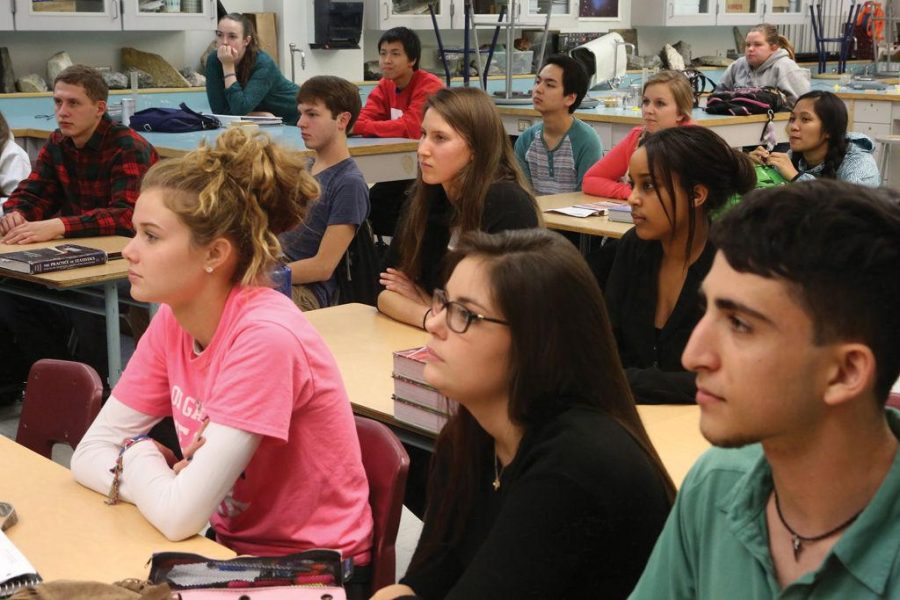Parental involvment still important for high schoolers
November 23, 2014
A study by Pitt researchers found that parents should have strong relationships with their children’s teachers throughout high school, despite the potential embarrassment of the students.
Ming-Te Wang, a Pitt researcher and assistant professor of psychology in education, studied the relationship between parental involvement in children’s schoolwork past elementary school and the children’s academic success. Child Development, a monthly academic psychology journal, published the study in its December issue.
The study measured “parental involvement” by the frequency and quality of communication between parents and teachers, how much parents encouraged children to problem-solve on their own, study time scheduled by parents at home and how much parents discussed the importance of education for success.
The research showed that all types of parental involvement correlated to higher GPAs from seventh- through 11th-graders, and that a “high level of parental structure” particularly benefitted the grades of black students.
While most people know parental involvement through elementary school is important, Wang, who also holds a joint appointment in the Department of Psychology, said secondary school can be just as important.
“It is far more complex than that, and there are many variables that go into how parents interact with their children over time,” Wang said in a release last week.
Home structure and discussion of the importance of education at home were also associated with decreased problematic behaviors and future success in school.
The research team, which consists of Wang, Tara Hofkens, a graduate researcher in Pitt’s Learning Research and Development Center, and Nancy E. Hill, a professor of education at Harvard University, asked more than 1,400 families in the Eastern region of the United States about how involved the parents were in the school lives of their teenagers.
Using questionnaires and interviews, the team gathered data from seventh-graders, ninth-graders and 11th-graders and their parents, 56 percent of whom were black and 39 percent of whom were of European descent..
“The key findings here are that parents should always be involved but need to give great thought as to how they are involved and the manner in which they stay involved as the child ages,” Wang said.
Parents, Wang said, should adapt their methods as their children age and progress through school. What works while students are in elementary school is rarely effective throughout secondary school, he said. Quality communication between parents and teachers, parents challenging students to figure out their own solutions to homework and pressing the importance of education to children’s futures also linked heavily to “lower depressive symptoms” in adolescents.
“Our findings highlight the importance of adapting the level and nature of parental involvement in education to adolescents’ changing psychological needs,” said Wang.








